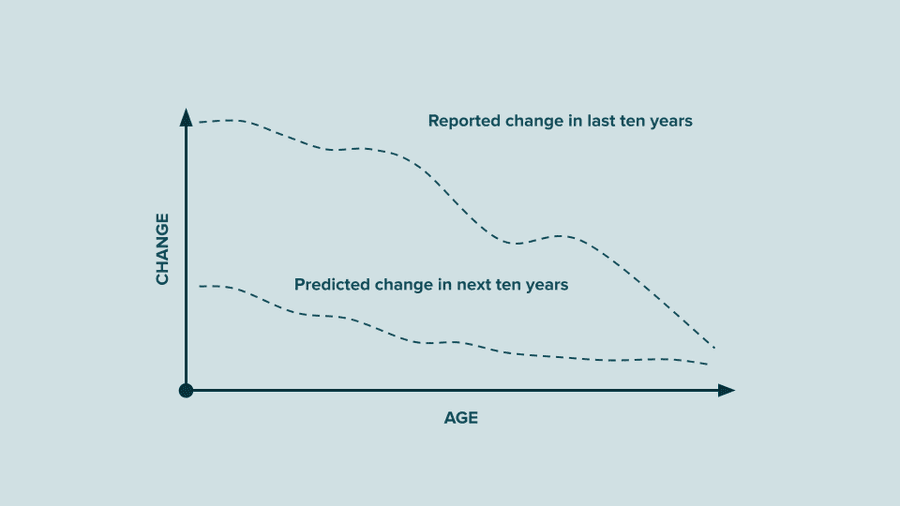We Do Not Represent The End Of History
When we pass laws, we often do so with an intent of making a better country, improving our country. But any country that’s been around for a few decades has numerous laws on the books that made perfect sense when they were crafted - in fact, that were seen as enlightened when they were crafted - and today, they seem antiquated or absurd, or even unconscionable.
And all of these examples stem from the same problem, which is that we imagine that we represent the end of history. That the future is only going to be more of the same.
34
221 reads
CURATED FROM
IDEAS CURATED BY
Shankar Vedantam explains the profound impact of something he calls the “illusion of continuity” - the belief that our future selves will share the same views, perspectives and hopes as our current selves - and shows how we can more proactively craft the people we are to become.
“
The idea is part of this collection:
Learn more about motivationandinspiration with this collection
How to manage workplace stress
How to prioritize and make better decisions
How to learn anything fast
Related collections
Similar ideas to We Do Not Represent The End Of History
The end-of-history illusion
The end-of-history illusion is when we underestimate how much our personalities, work situations and values will change in the future.
The end-of-history illusion was coined in 2013. It is based on a series of studies showing that people tend to think that they will change...
The Size Of Our Brain Through History
Researchers have found that for much of human evolutionary history our brains kept growing. In fact, if you count from our last shared ancestors with chimpanzees six million years ago, the human brain size almost quadrupled. This happened thanks in part to the im...
The history of declinism
- Writer Jemina Lewis described memory bias as an emotional strategy, where we cling to the past when the present seems extremely bleak.
- In the late 1700s, Edward Gibbons, an English historian and writer, published The History of the Decline and ...
Read & Learn
20x Faster
without
deepstash
with
deepstash
with
deepstash
Personalized microlearning
—
100+ Learning Journeys
—
Access to 200,000+ ideas
—
Access to the mobile app
—
Unlimited idea saving
—
—
Unlimited history
—
—
Unlimited listening to ideas
—
—
Downloading & offline access
—
—
Supercharge your mind with one idea per day
Enter your email and spend 1 minute every day to learn something new.
I agree to receive email updates
